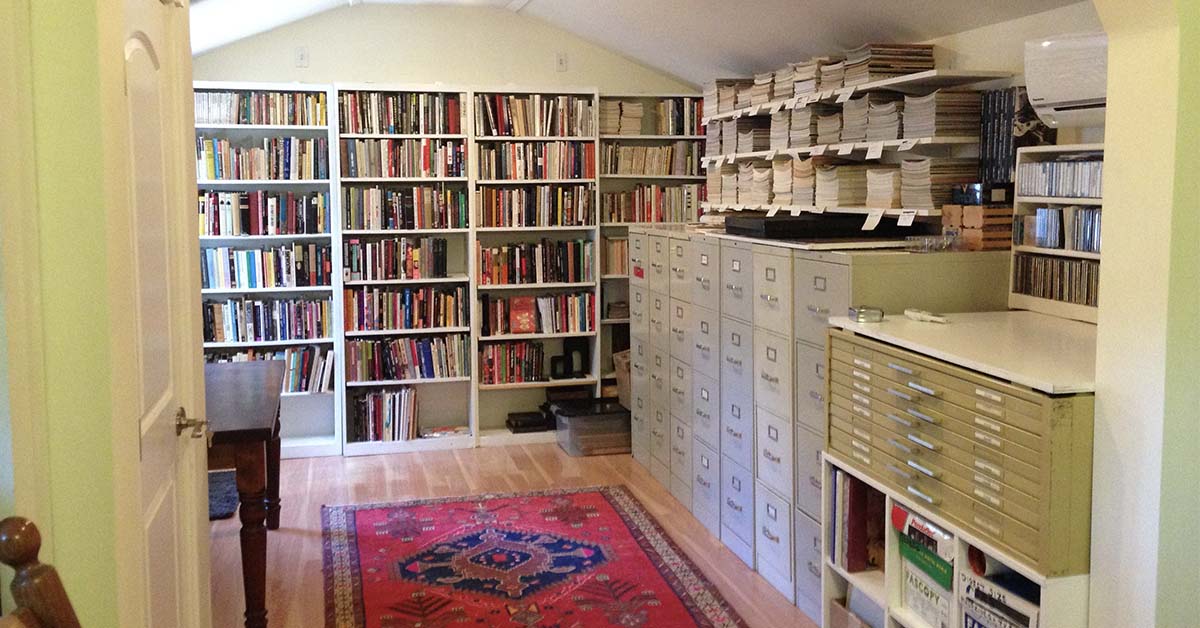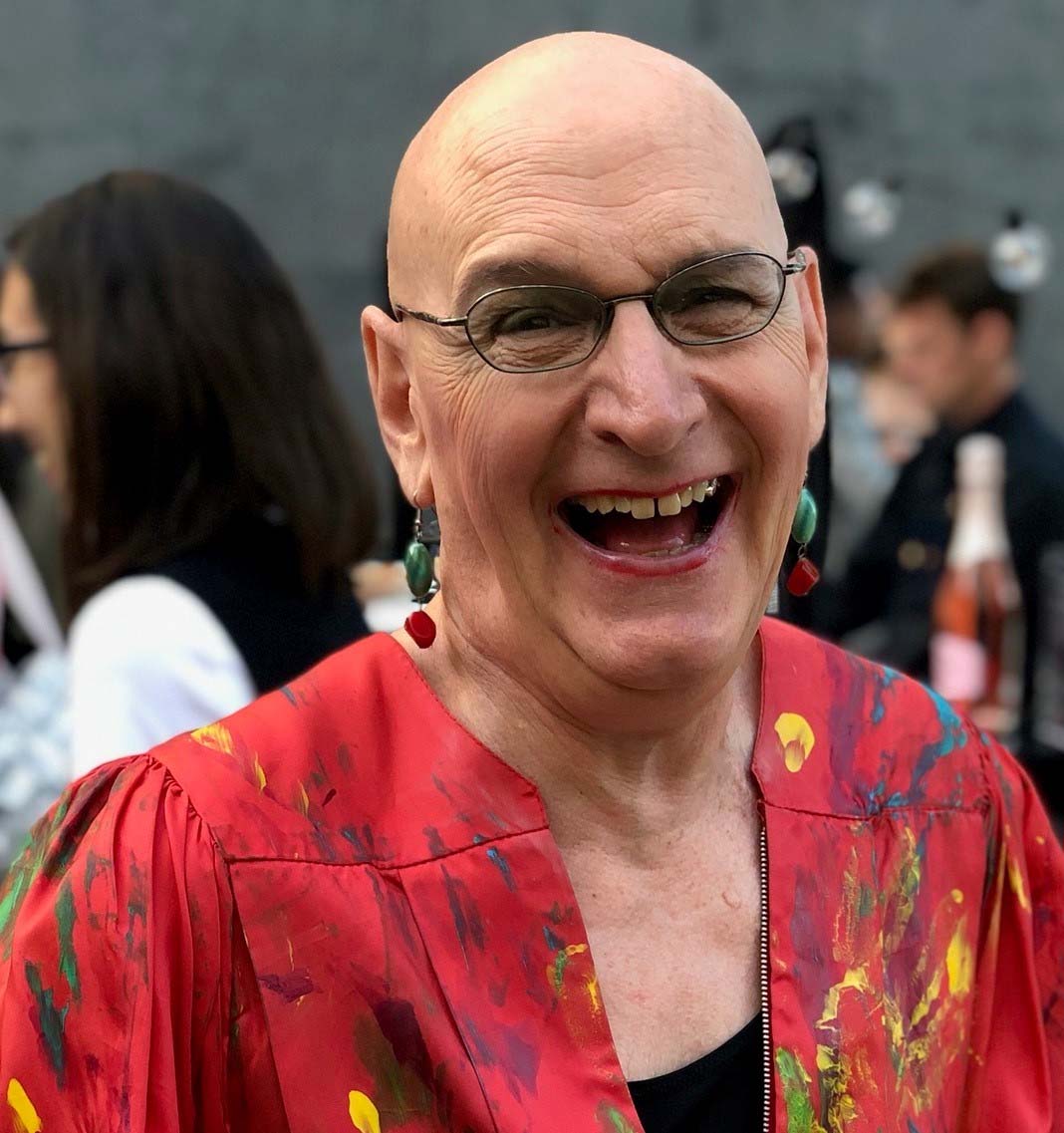Proudly Preserving Transgender History: A Look at the Louise Lawrence Transgender Archive

Photos courtesy of the Louise Lawrence Transgender Archive
“All my life, I’ve collected things.” Founding the Louise Lawrence Transgender Archive came naturally for Ms. Bob Davis, who began amassing transgender magazines and other paper materials in 1979. Reflecting on her decision to start a public archive, Ms. Bob said, “When I was young, for many years I thought I was the only transgender person in the world, right? Because everyone was underground. The transgender support groups weren’t public. There wasn’t such a thing as an LGBT center in town. So finding information was difficult.” A collection like the Louise Lawrence Transgender Archive – a recipient of a recent Community Issues grant from Horizons Foundation – changes that.
Desiring to share her knowledge on transgender history, Ms. Bob began to write articles for a number of community publications in the ‘90s. Ms. Bob also served two terms on the board of the GLBT Historical Society, so she is no stranger to working with archives.
When Ms. Bob moved to Vallejo she had to put her collection of transgender historical materials, at that time forty bankers boxes, in storage. But Ms. Bob could see her termite-infested garage’s potential, and she decided to turn the space into a community archive.

Ms. Bob Davis. Photo courtesy of the Louise Lawrence Transgender Archive.
The Louise Lawrence Transgender Archive’s namesake was a Northern Californian transgender pioneer who was part of the group that published the first manifestation of the transgender magazine Transvestia in the 1950s. Louise Lawrence worked diligently to educate others, including doctors and sex researchers, about the transgender community, and built a network of transgender people all over the country.
While establishing the archive, Ms. Bob recruited archiving assistance from Kelsi Evans, the Interim Co-Executive Director and Director of the Dr. John P. De Cecco Archives and Special Collections at the GLBT Historical Society. Ms. Bob’s archival knowledge expanded as she learned how to store magazines and other paper materials to protect them from yellowing and damage.
One of the archive’s magazines is Drag Magazine, of which it has many issues. “This [magazine was] done by people who don’t necessarily know how publishing works,” Ms. Bob said, “so that first issue doesn’t even have a year on it.” Ms. Bob detailed how the covers were drawn by a professional graphics artist and cross-dresser named Vicky West.

Issues of Drag Magazine. Photos courtesy of the Louise Lawrence Transgender Archive.

Ms. Bob has a story like this for almost every piece of material in the archive, and she shares her knowledge with every visitor. While researchers and students frequent the archive, more than half of the visitors are community members and trans people who are curious. “There are many people who come [who say] “Show me something cool,” explained Ms. Bob. “Someone who’s just coming for curiosity just wants a quick hit. So for them you get out some of the ‘90s magazines. I ask if they want to see any of the smut. Oh, there’s a lot of smut.”
She frequently shows photos from a book she acquired while attending the conference “Queering Memory” in Berlin in 2019, which features all the issues of the first transgender community magazine from the 1920s. These photos hold a special magic, because “you see these guys in flapper dresses and they’re just walking down the boulevard, they’re not onstage, they’re not at home behind closed drapes. They’re out in public.” As Ms. Bob tells their stories, these photos come alive.
Some of the most captivating photos to Ms. Bob are those that feature people who are “really serious about it.” She described finding “multiple photos of the same person in clearly different situations… different places, different parties. Then you begin to think maybe this is meaningful for them in some way. Especially if you see someone who is trying to look authentic rather than comic, someone who’s trying to look passable. Then you begin to wonder…maybe there’s a transgender identity back there. You can’t be sure, you may not even know the person’s name, but you see this pattern.”
Many of the archive’s materials are also viewable online at the Digital Transgender Archive. Ms. Bob welcomes researchers and has distributed her findings and writing on the internet, but ultimately, she believes “my job is to bring this stuff together and to make it available. To make sure it’s in good condition and free from danger.”
The Louise Lawrence Transgender Archive is notable in that it is a community organization and physical archive. Ms. Bob’s friend Dallas Denny, a well-known archivist within the transgender community, also collected transgender materials and ultimately gave her collection to the University of Michigan. “I can’t part with this stuff,” Ms. Bob said, but eventually she hopes to leave the archive to another community organization.
I’m very proud of the fact that I have the ability to make this material available to people. It’s very fulfilling. Because to the trans people who come…there’s a connection that they have to the images they see or the books they see. I love turning them onto things that they didn’t know existed and had no idea existed. That’s really come to be one of the most meaningful parts of this whole project.
Ms. Bob Davis
The archive is growing, and recently received its first government grant from the California State Library, to Ms. Bob’s delight: “Now we’re on the big board.” The archive also received a Community Issues grant from Horizons Foundation. Horizons’ Community Issues grants can be used to fund general operating expenses, which Ms. Bob described as crucial, saying “everybody wants to fund a project…but that doesn’t pay the bills on the lights, that doesn’t buy [archival storage materials], you know?”
The grant will also fund the archive’s Speaker’s Bureau, in which the archive brings renowned transgender scholars and activists to community groups to share their work, discuss current issues, and inform the public about transgender history. “This grant’s been so crucial in helping the organization grow,” explained Ms. Bob. “The Horizons grant has been really good for us.”
Ms. Bob remarks on the archive’s website that “the history of marginalized communities is elusive, imperiled and best preserved by the community itself.” The archive’s work ensures that the history of marginalized transgender folks is now accessible and safely preserved for future generations.
Members of the public can visit the Louise Lawrence Transgender Archive by appointment, and visit online at lltransarchive.org.

